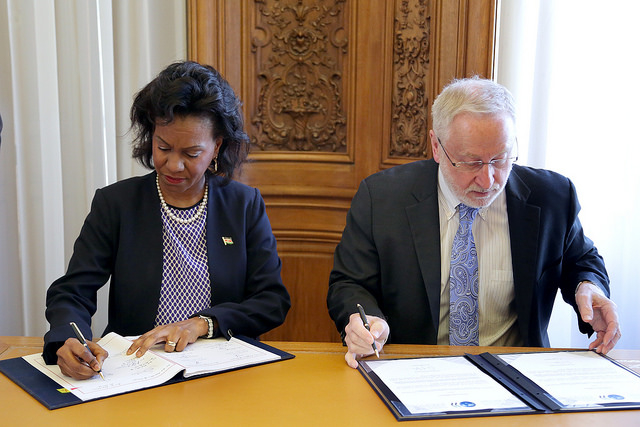
The United Nations Development Programme (UNDP) and the Organisation for Economic Co-operation and Development (OECD) plan to send more tax auditors to developing countries to increase compliance with local tax laws and boost domestic revenue for economic development, a senior official at the organisation has told Development Finance.
Gail Hurley, a policy specialist at UNDP, explained that the roster is being put together due to “an incredible level of demand for assistance” from emerging economies. The tax audits due to go ahead are part of a joint initiative between UNDP and the OECD, called Taxes Inspectors Without Borders (TWIB).
The TIWB programme was launched in June 2015, and has since returned around US$260 million in revenue to countries in Asia, Africa and Latin America, according to a statement released on Wednesday. More than US$100 million, equivalent to 38 percent of the total, was recovered from tax audits in Zimbabwe.
Auditors in Kenya are currently preparing for a full review of tax records in Botswana. By cooperating for the first time on tax auditing, both countries could ensure multinationals adhere to tax laws.
“We would like to expand in particular south-south expert deployments, [which could involve] a tax auditor from Kenya supporting the Rwanda revenue authority [for instance],” said Hurley, adding that her team is aware of the pressing need to “ensure skills and knowledge transferred by experts are retained”.
In a 2016 report, titled Domestic resource mobilization and taxation, the IMF and the World Bank argue that effective mobilisation of domestic resources will be critical to the fulfilment of countries’ sustainable development goals. The report states that around half of low-income countries raised less than 15 percent of GDP in taxes in 2014, though the lowest tax revenues were returned to the least developed countries.
The report, however, adds that an average increase of 1.6 percent in tax revenue, measured as a percentage of GDP of low-income countries, was taken from 1990 to 2014. A median average rise in regained taxes of around 4.2 percentage points was also taken by the same measure, over the same period.
“Developing countries face serious challenges in raising domestic resources to fund basic government services, and tax avoidance by multinational enterprises is a complicating factor,” said James Karanja, head of the TIWB secretariat.
The decision to send Kenya’s experts to Botswana was announced during the Global Partnership for Effective Development Co-operation in Nairobi, which ran from 28 November to 1 December. Following the announcement, UNDP Administrator Helen Clark praised the impact the TWIB programme has had in developing countries.
As attention turns to Botswana’s imminent tax audit, much of what stands to be recovered is expected to come from large corporations deemed to have paid less than a fair amount into the economy.
Auditors are also due to reach Republic of the Congo, Egypt, Uganda, Cameroon and Vietnam, in 2017. All audits of these countries are scheduled to go ahead in partnership will the African Tax Administration Forum, and will aim to provide an evaluation of best approaches in development strategies for emerging economies.
Other countries scheduled to receive assistance include Costa Rica, Ethiopia, Georgia, Ghana, Jamaica, Lesotho, Liberia, Malawi, Nigeria, Uganda, Zambia and Zimbabwe.

